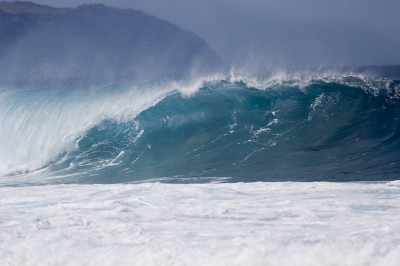Oceanography

Oceanography is the scientific study of the ocean and its phenomena. Students take courses to prepare for a major in oceanography and to fulfill physical science general education requirements. Career options include teaching, research, marine product sales, and a variety of positions in private and public environmental agencies.
Contact Information
|
Chair: John Turbeville Dean: Michael Fino |
Department: Physical Sciences Office: Building OC3600, 760.757.2121 x6924 |
Full-Time Faculty
|
Keith Meldahl Chris Metzler John Turbeville |
How to Read Course Descriptions
For more detailed information about a course, such as its content, objectives, and fulfillment of a degree, certificate, or general education requirement, please see the official course outline of record, available at http://www.miracosta.edu/governance/coursesandprograms/courseoutlines.html.
Courses
OCEA 101: Introduction to Oceanography
Units: 3
Prerequisites: None
Enrollment Limitation: Not open to students with credit in OCEA 101H.
Acceptable for Credit: CSU, UC
Lecture 3 hours. (1919.00)
Course Typically Offered: F, SP, SU
This course explores the major processes and features of the world's oceans. Topics include the origin and history of the ocean basins, atmospheric circulation and weather, ocean circulation, and the dynamics of waves, tides, and coastlines. The course also reviews marine life (including plankton, nekton, benthos, and marine mammals), explores the oceans as a resource for people, and considers human impacts on marine environments.
OCEA 101H: Introduction to Oceanography (Honors)
Units: 3
Prerequisites: None
Enrollment Limitation: Not open to students with credit in OCEA 101.
Acceptable for Credit: CSU, UC
Lecture 3 hours. (1919.00)
Course Typically Offered: F OR SP
This course offers highly motivated students an enriched introduction to the scientific study of the oceans. The course explores the major processes and features of the world's oceans, including plate tectonics, the origin and history of the ocean basins, atmospheric circulation, weather and climate, ocean circulation, and the dynamics of waves, tides, and coastlines. The course also reviews marine life (including plankton, nekton, benthos, and marine mammals), explores the oceans as a resource for people, and considers human impacts on marine environments. UC CREDIT LIMITATION: Credit for OCEA 101 or OCEA 101H.
OCEA 101L: Introductory Oceanography Laboratory
Units: 1
Prerequisites: OCEA 101 or OCEA 101H.
Enrollment Limitation: Concurrent enrollment in OCEA 101 or OCEA 101H if prerequisite not met.
Acceptable for Credit: CSU, UC
Laboratory 3 hours. (1919.00)
Course Typically Offered: F, SP
This course is designed to accompany Oceanography 101 or 101H. It offers hands-on experience with oceanographic materials and techniques in both the laboratory and field. Topics include reading navigational charts and topographic maps, interpreting sea floor features, analyzing seawater chemistry, and studying waves and tides. On field trips, students study waves, currents, and coastal processes, examine organisms in coastal marine habitats and at an aquarium, and participate in a half-day scientific ocean voyage.
OCEA 292: Internship Studies
Units: 0.5-3
Prerequisites: None
Corequisite: Complete 75 hrs paid or 60 hrs non-paid work per unit.
Enrollment Limitation: Instructor, dept chair, and Career Center approval. May not enroll in any combination of cooperative work experience and/or internship studies concurrently.
Acceptable for Credit: CSU
Course Typically Offered: TBA
This course provides students the opportunity to apply the theories and techniques of their discipline in an internship position in a professional setting under the instruction of a faculty-mentor and site supervisor. It introduces students to aspects of the roles and responsibilities of professionals employed in the field of study. Topics include goal-setting, employability skills development, and examination of the world of work as it relates to the student's career plans. Students must develop new learning objectives and/or intern at a new site upon each repetition. Students may not earn more than 16 units in any combination of cooperative work experience (general or occupational) and/or internship studies during community college attendance.
OCEA 298: Directed Study in Oceanography
Units: 1-3
Prerequisites: None
Enrollment Limitation: Instructor and department chair approval and successful completion of 12 units of college work with at least a 3.0 grade-point average.
Acceptable for Credit: CSU
Laboratory 3 hours
Laboratory 6 hours
Laboratory 9 hours. (1919.00)
Course Typically Offered: TBA
This course allows students to pursue a special area of interest in order to achieve specific goals beyond the scope of existing courses within the discipline. Students work independently and interact directly with an instructor on an individual basis and as prescribed by the Directed Study Agreement.





